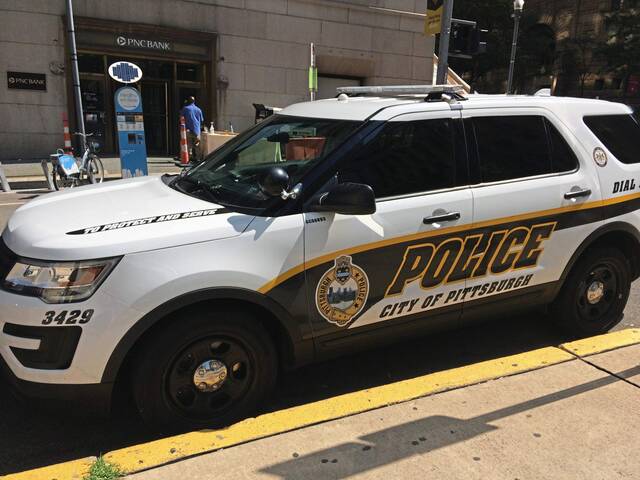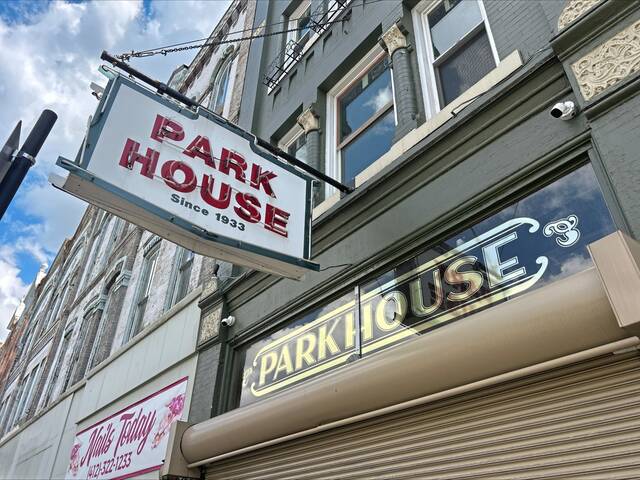Pittsburgh City Council heard mixed opinions about Spin’s electric scooter ride-sharing service during a public hearing Wednesday.
The Spin service was authorized in July 2021 after the state government approved a pilot program that made Pittsburgh the first city in Pennsylvania to allow e-scooters. That pilot program ends in July and would require state approval to be continued.
A study recently released by Spin showed that about 48% of riders use scooters for commuting, 45% use them to meet family or friends, 23% ride them for dining out and shopping and 19% use them to run essential errands.
Some have been critical of the service because some users do a poor job of parking the scooters after using them, occasionally blocking sidewalks and ramps. The Spin study said only 3% of scooter trips end in parking jobs that block sidewalk access. Spin said it has implemented a system of warnings, fines and suspensions, resulting in only 8% of people reoffending after a parking warning.
Parking audits conducted by the city’s Department of Mobility and Infrastructure have shown that about two-thirds of scooters are parked properly.
Kim Lucas, director of the city’s Department of Mobility and Infrastructure, said during Wednesday’s public hearing that 20% of Pittsburghers don’t have access to private cars. DOMI’s MovePGH initiatives, including the e-scooter pilot program, aim to offer transit options for those people and others who are looking for convenient ways to make short trips.
More than 200,000 people have made nearly 1 million trips on the scooters during the two-year pilot program, Lucas said.
About half of the users have reported they don’t have regular access to a car, she said.
“We want to make sure people have access to their basic needs in our city, and mobility can be a barrier to those basic needs,” Lucas said.
Jason Shaffner, Spin’s general manager based in Pittsburgh, said the company has made several efforts to ensure people are using the scooters properly and safely. He noted that first-time riders have to take a safety quiz, and all riders are required to submit a picture of their parked scooter at the end of their ride.
Regular in-app messaging reminds people to ride and park responsibly, and up to 40 employees work on “proactively correcting parking issues,” Shaffner said.
On average, he said, improperly parked scooters are removed within an hour of a complaint.
Lucas said there have been 37 injuries reported on scooters and no fatalities in Pittsburgh.
Councilman Bruce Kraus, D-South Side, said he has been “pleasantly surprised” that the scooters haven’t been as problematic as some anticipated — despite “growing pains” and some “people who were misusing the program.” The scooters, he said, could be part of the city’s efforts to encourage young people to stay in the city.
Councilman Anthony Coghill, D-Beechview, said he had “mixed reactions” to the scooters. His council district has no bike lanes, which leads to many people riding and parking the scooters on the sidewalks.
“I think they’re really good in certain districts,” he said. “I think they’re really good for certain demographics.”
Shaffner told council members that the company is “working toward” becoming profitable.
The company charges $1 to unlock a scooter and then 39 cents per minute driving, though there are discounts for people using scooters in areas the city has identified as having economic or mobility issues, according to Lucas. People who qualify for government assistance can get an 80% discount.
Lucas said Spin pays a permit fee that offsets the cost of work the city does to monitor the scooters, but she did not offer a specific cost. That permitting process also allows the city to regulate the program, she said.
Some members of the public also voiced concerns during the public hearing.
Amy Zaiss of Beechview said she saw a potential solution to scooter complaints during a recent visit to Washington, D.C. There, she said, similar scooters were required to be locked to bike racks.
“They’re out of the way,” she said. “I’m not against scooters. I just think leaving them on the sidewalks is a real issue that needs to be addressed.”
Scott Bricker, executive director of Bike Pittsburgh, acknowledged it’s a challenge to navigate sidewalks — many of which he said are already in disrepair — when scooters are in the way.
Still, he said, the pilot program has helped with “reducing car dependency” by offering another convenient method for people to make shorter trips.
Lucas pointed out that when people use scooters over cars, it reduces emissions, congestion and parking demand.
Parker Thomas Allen of Lawrenceville suggested that some people turn to Spin scooters only because of problems with other transportation options in the city. He said there was a need for more reliable public transit and a more robust bike lane system.
Several people also highlighted that the scooters aren’t options for many people with disabilities who may not be able to use a scooter. Scooters sitting in ramps and sidewalks also can pose difficulties and risks for people many people with disabilities, opponents of the scooters said.
Proponents of the scooters have pointed out that they reduce car trips and can be a convenient option for people who don’t have other transportation options.
Jason Foster of Allentown said he relies on Spin scooters to get to work because he doesn’t have a car and finds the bus to be unreliable.
Teaira Collins of Crawford Square called for a “happy medium” solution that could include a better system for ensuring scooters are parked in appropriate places after every ride.
“I don’t want to say get rid of them, because people do need them,” Collins said. “We need better transportation.”








